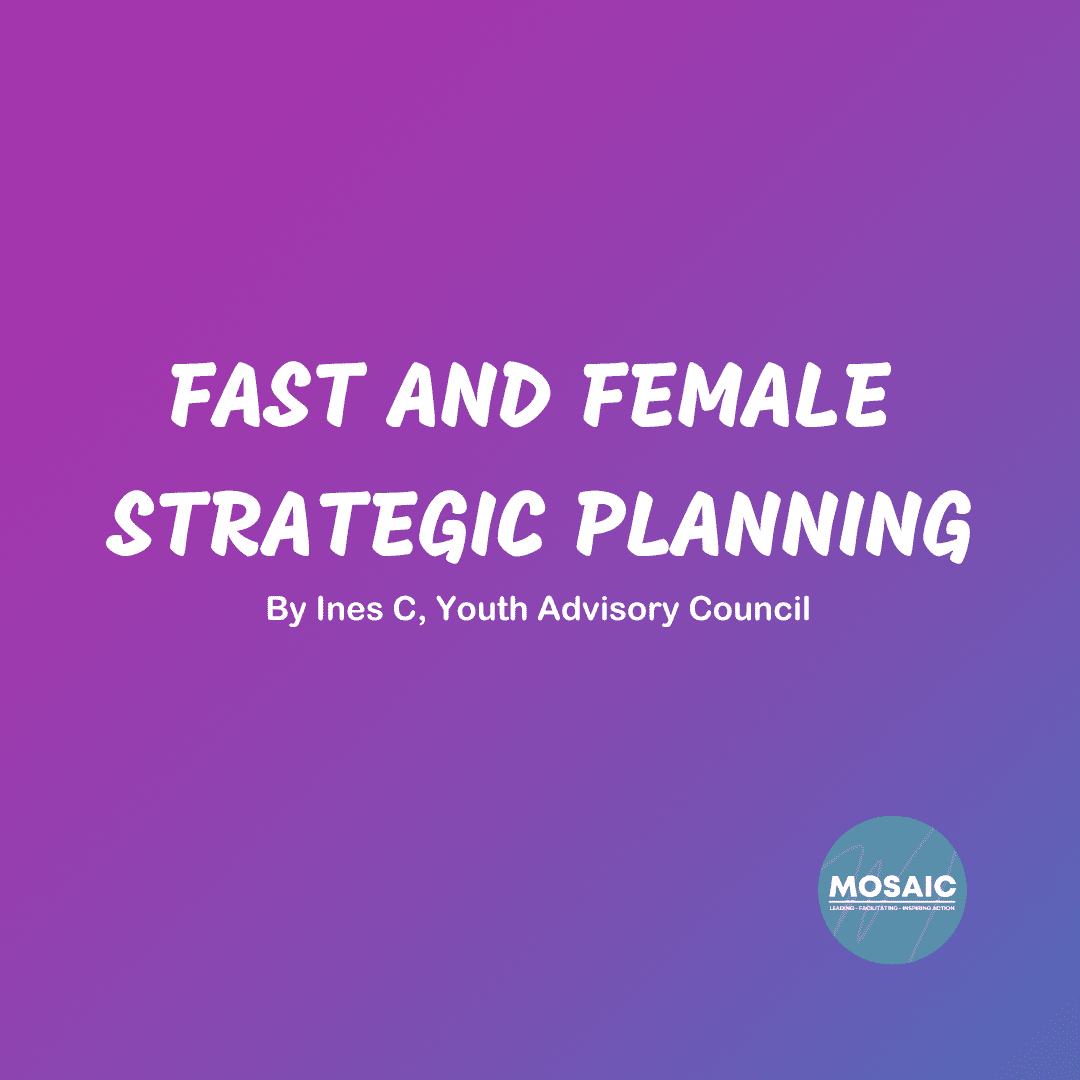Fast and Female is thrilled to announce the formation of our second Youth Advisory Council…

EMBRACING THE JOURNEY: MENTAL HEALTH AND RECOVERY FROM INJURY IN SPORT
1.
EMBRACING THE JOURNEY: MENTAL HEALTH AND RECOVERY FROM INJURY IN SPORT
For those of you that don’t know me, my name is Amelia, and I joined the Girls Forward team in December 2024 with the goal of empowering girls to pursue their dreams while also finding joy through sport.
 In this post, I’m sharing the story of my knee injury, the journey to recovery, and the mental health challenges that came along with it. I’m sharing this in hopes to bring awareness to the importance of resilience, forgiveness, and joy in sport.
In this post, I’m sharing the story of my knee injury, the journey to recovery, and the mental health challenges that came along with it. I’m sharing this in hopes to bring awareness to the importance of resilience, forgiveness, and joy in sport.
This blog series aims to bring light to the mental health challenges in sport and the importance of building strong mental resilience while pursuing high-level sports. It might sound silly to say “it’s important to enjoy the sport you are doing,” but this was one of the most important things I’ve learned over the past three years.
My parents introduced me to cross-country skiing when I was only three years old (unless you count being pulled in a chariot, in which case I have been skiing since before I was even a year old). However, I didn’t start focusing on being competitive until 2020, when I was 14.
It might sound silly to say “it’s important to enjoy the sport you are doing,” but this was one of the most important things I’ve learned over the past three years.”
To fully understand the story of my injury and the obstacles I faced while recovering, it’s first important to understand the nature of my first two years of serious training. Because there were no competitions in 2020, my first year focused primarily on skiing and training on my own and with my family. As a result, it was impossible to compare my abilities to other skiers, and I was only focused on improving my own technique, pain threshold, fitness, and tactics.
While this may paint me as an inwardly motivated person, able to focus primarily on events within my own control to achieve improvement and success, this is far from the truth. I am extremely motivated by numbers—whether race results or grades in school—something that was amplified by the lack of races.
During this time, I chased self-improvement. However, I believed improvement could be measured by reaching a new maximum heart rate, even if my training plan called for a long, easy effort, or by skiing for four hours when I was only supposed to do one.
Everyone’s journey is different, and this type of motivation can be very healthy in the right amount. However, I began obsessing over achieving perfect numbers. Every workout, I would examine my heart rate and pacing, checking to see if I reached a new maximum heart rate.
For a short period of time, I saw exponential improvement in my fitness and speed. I chased new personal records on timed segments at the Canmore Nordic Center and even went as far as to ski 100 km just so I could say that I did. But with each new activity, I took another step toward burnout.
I always believed burnout was something you inched towards slowly, but for me, it came crashing down.”
Although the challenges associated with overcoming injury were difficult, I am now grateful that I was forced to take a step back from training and racing because of my injury before becoming severely burnt out. Not only did this give my body a chance to rest, but it also forced me to reconsider my mindset—something I never realized I needed to do.
I always believed burnout was something you inched towards slowly, but for me, it came crashing down.
 My first season of racing was everything I had hoped for. I raced perfectly for almost the entire season and was at peak fitness. Each race I seemed to get a little stronger, ultimately earning the Alberta Aggregate Champion title and the National Champion title in the classic sprints event for my age group.
My first season of racing was everything I had hoped for. I raced perfectly for almost the entire season and was at peak fitness. Each race I seemed to get a little stronger, ultimately earning the Alberta Aggregate Champion title and the National Champion title in the classic sprints event for my age group.
While this season was different from my year spent training during the pandemic in the sense that I could attend races rather than train alone, the addition of competition caused my mindset to deteriorate further.
I didn’t realize at the moment, but my focus on results and numbers is what would eventually force me to take a step back from skiing and focus on my mental health.
Only a few months after winning a race at my first-ever nationals, I faced an injury that I initially believed I could recover from within a few months—but that eventually forced me to reconsider the mentality with which I approached high-level racing and training.
I didn’t realize at the moment, but my focus on results and numbers is what would eventually force me to take a step back from skiing and focus on my mental health.”
Following the 2021-2022 race season, I suffered a severe hyperextension injury to my posterior cruciate ligament. This caused a month without any training at all and an additional four months of modified training.
Not only was this detrimental to my fitness, but it also caused my mental health to suffer, further delaying my recovery.
In the weeks following my injury, burnout came crashing down on me. The physical and mental fatigue I had been building up for the past two years, combined with the mental strain of uncertainty and injury, sent me down a hole that took almost three years to climb out of.
While I initially tried to return to sport with the same mindset I originally held, my performance began to decline, forcing me to reconsider my approach to the sport. I was lucky to have the opportunity to race the season following my injury. However, despite being able to participate, I was unable to race as well as I had in the season prior and continued to suffer mentally from the feeling of being “behind” my peers.
The past three years have been spent recovering both mentally and physically from this experience and striving to train and race to the best of my abilities.
 While the initial period of recovery was physically painful, the mental challenges were equally difficult. I felt the weight of expectations—both my own and those of others–and the fear of not being able to return to my previous performance level was overwhelming at times. The pressure to meet external expectations clashed with my need for self-compassion and patience.
While the initial period of recovery was physically painful, the mental challenges were equally difficult. I felt the weight of expectations—both my own and those of others–and the fear of not being able to return to my previous performance level was overwhelming at times. The pressure to meet external expectations clashed with my need for self-compassion and patience.
I initially believed I could return to training and racing with the same mindset I held before. However, I soon realized this approach was not sustainable. My body and mind needed time to heal, both from the strain of being injured and from the burnout I had been approaching for months with my previous training philosophies.
It took me a very long time to recognize that I needed to recover mentally as well as physically.
My body and mind needed time to heal, both from the strain of being injured and from the burnout I had been approaching for months with my previous training philosophies.”
I returned to racing the season following my injury and was even lucky enough to qualify for the Canada Winter Games in Prince Edward Island. However, internally, I was far from recovered. My performance began to decline, partially due to a results-focused mindset and partially due to inconsistency in my training. I became increasingly unmotivated as a result of declining performance.
As I found through this experience, the issue with being primarily motivated by numbers—whether race results or workout data—is that when you are no longer able to achieve the numbers you want, you begin to lose motivation, making it even more difficult to get back to the place you want to be in both training and racing.
I discovered the importance of resilience and began to realize that it is not just about bouncing back quickly, but also about adapting to change and finding strength in adversity.”
It took me two years to finally realize I needed to change my mindset, and acknowledging the need for change was only the first step.
The road to mental recovery was not linear and had several setbacks and moments of doubt, but I slowly began to embrace the process. During this time, I discovered the importance of resilience and began to realize that it is not just about bouncing back quickly, but also about adapting to change and finding strength in adversity.
I learned to forgive myself for not being able to perform at my previous level and to focus on the progress I was making, no matter how small.
Today, I am stronger and more resilient than ever before and have learned invaluable lessons about true self-compassion, patience, and the importance of mental health.”
One of the most significant changes I made was shifting my mindset from purely performance-based to finding joy in the process. I reconnected with the reasons I fell in love with the sport in the first place—the feeling of gliding across the snow, the amazing friendships I have made in the cross-country ski community, and the sheer joy of being active outdoors. This shift helped me find a new sense of purpose and fulfilment in my sport. It took me three years to even come close to a full recovery from my initial injury, even though the physical aspect lasted less than six months.
Today, I am stronger and more resilient than ever before and have learned invaluable lessons about true self-compassion, patience, and the importance of mental health. I hope that by sharing my story, I can inspire others to prioritize their overall well-being and find joy in their pursuits, even in the face of challenges.
Remember: recovery is not just about returning to your sport; it’s about emerging stronger—both physically and mentally. Embrace the journey, celebrate your progress, and never lose sight of the joy that brought you to your sport in the first place.
Help us have an impact on young women across the country! Our Youth Advisory Council (YAC) members are a big part of what we do and they deserve the best. Connect with our Fund Development Manager, Jen Piasecki at jpiasecki@girlsforward.ca to learn about sponsorship opportunities for the YAC. If you have any questions or inquiries related to YAC and getting involved, please email us at youthcouncil@girlsforward.ca



